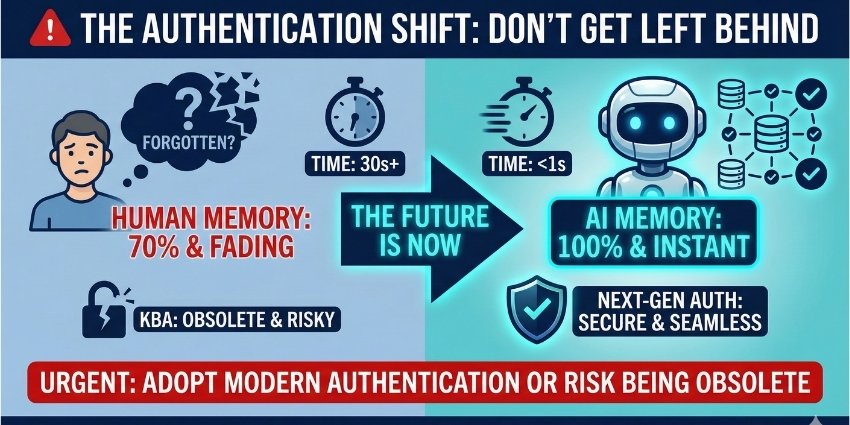Why is emotional intelligence important in the contact center, and how do you ensure your agents can demonstrate EI effectively? In recent years, many companies investing in their CX strategies have focused on the same things: speed, efficiency, and convenience.
While all of these factors are important, it’s crucial to ensure they don’t come at the expense of emotional intelligence (EI). Emotional intelligence in the contact center is crucial to creating meaningful, human connections with customers.
In a world where AI is taking over many service interactions, customers still crave authentic human experiences. In fact, one study found 42% of customers say friendly service is the most common reason for them to make a repeat purchase.
Here’s everything you need to know about the value of emotional intelligence in customer service.
What is Emotional Intelligence?
To answer the question “why is emotional intelligence important in the contact center”, we first need to define what “EI” is. Emotional Intelligence refers to the abilities and skills human beings use to identify, understand, and manage their own emotions. It also covers the techniques we use to recognize and empathize with the emotions of others.
The concept of emotional intelligence was first introduced by John Mayer and Peter Salavoy in 1990, but it was popularized by Dan Goleman in 1995. Goleman identified five core components critical to high levels of emotional intelligence:
- Self-awareness: The ability to recognize your feelings and understand how your actions and emotions can affect people around you.
- Self-regulation: Being able to manage and regulate the emotions you feel, to ensure they’re expressed in an appropriate format.
- Empathy: Understanding what other people are thinking and feeling, and being able to resonate with their experiences.
- Motivation: Emotionally intelligent people are motivated by not just money or power, but the desire to make the world a better place.
- Social skills: The ability to interact with others effectively, communicate clearly, and build relationships or rapport.
Why is Emotional Intelligence Important in the Contact Center?
So, why is emotional intelligence essential in the contact center?
Emotional intelligence has become an essential component in virtually every aspect of the business world. Many experts even believe EQ (your emotional quotient) is more important to success than IQ. Emotionally intelligent people can connect more effectively with others, collaborate well, and respond appropriately to various situations.
However, emotional intelligence can be particularly valuable in the contact center. 86% of customers claim a positive emotional connection with a contact center agent would prompt them to make a secondary purchase.
Another report by the Harvard Business Review found emotionally intelligent organizations report stronger customer experiences, higher levels of customer loyalty, and greater levels of productivity. Unfortunately, many customers feel companies are losing touch with the human element of CX.
High levels of emotional intelligence in the contact center lead to happier, more loyal customers. When people feel heard and respected, they’re more likely to form positive relationships with the brands behind the contact centers.
Emotionally intelligent agents are also excellent listeners. They can read the tone of voice of customers, get a feel for their situation, and often resolve problems a lot faster. This can lead to higher levels of productivity and efficiency in your business.
How to Bring Emotional Intelligence to the Contact Center
Now you know the answer to “Why is emotional intelligence important in the contact center?” the next step is finding ways to improve agent EI. Research shows agents with high emotional intelligence often achieve higher customer satisfaction ratings than their counterparts.
Emotionally intelligent agents know how to channel empathy to understand what customers are feeling, anticipate the needs of their clients, and build rapport. Hiring agents with a strong level of empathy isn’t enough; contact center leaders need to implement a strategy that embeds emotional intelligence into the heart of every agent’s actions.
Here are some quick tips for success.
1. Help Agents Anticipate Customer Needs
Part of showing high levels of emotional intelligence is proactively anticipating customer needs. The more an agent knows about a customer’s previous journey with the company, the products or services they use, and their goals, the more they can deliver personalized human experiences.
While agents can be trained to spot sentiment and cues in a customer’s tone of voice and words, some tools can make proactive support easier. Providing access to a CRM system within a contact center can help agents better understand consumers. AI tools that show insights into customer trends and preferences can assist with navigating a conversation. Even tools can use historical data to predict a customer’s needs in advance.
2. Train Agents to Ask the Right Questions
Emotional intelligence in the contact center is often connected to empathy. Empathy isn’t just about showing sympathy for a customer’s situation. It relies on an agent’s ability to understand the problem, and resonate with contacts fully. To truly understand the source of a problem, agents may need to ask questions, to help them clarify the situation.
Teaching agents how to ask questions that guide them towards the right outcome for the customer without being aggressive or impatient is valuable for EI. For instance, your agent could say, “I think what you’re saying is [this], am I right?”
3. Prioritize Clear Communication
Excellent communication and emotional intelligence go hand in hand. When customers feel they’re on the same page as a contact center agent, they’re more likely to feel listened to and understood. Teach agents to use simple, straightforward language when connecting with customers, avoiding industry jargon.
Where possible, it’s also worth encouraging staff members to mimic the tone and language of the customer they’re talking to. This can help to create a sense of affinity and show customers that the agent understands their emotional situation.
4. Demonstrate the Value of Rapport
When agents are pressured to reduce average handling and resolution times, it’s easy to skip over significant parts of an intense conversation. However, building rapport is essential to creating a real human connection. Simple steps like calling a customer by their name and asking how they’re doing can help a conversation to flow more smoothly.
Building rapport also encourages customers to be more open with their communication. They’re more likely to explain what’s bothering them in detail, which helps agents to find the best and fastest resolution to their issue.
5. Help Agents Build Resilience
One of the answers to the question, “Why is emotional intelligence important in the contact center?” is that it can improve employee engagement and satisfaction. Showing emotional intelligence isn’t just about understanding what customers feel. It’s also about ensuring agents can effectively recognize and manage their own emotions.
Training agents on how to “disconnect” from frustrating and challenging interactions with customers and avoid taking things personally can be important here. Ensuring team members can turn to other agents for emotional support with collaboration tools can be helpful too.
6. Build your Contact Center to Put the Customer First
It’s not just contact center agents that can demonstrate emotional intelligence. Entire businesses can show empathy and compassion in the way they build their contact center. Examining the customer journey and looking for friction points you can resolve is an excellent way to show EI.
By removing problems like challenging IVR menus, long waiting times, and frustrating call quality issues, you show you’re committed to putting your customer’s needs first.
7. Track the Impact of Emotional Intelligence
Finally, ensuring your approach to emotional intelligence has a positive impact on your contact center is a must in today’s world. You don’t have to guess how effective leaders and agents are at demonstrating emotional intelligence.
Tracking customer experience KPIs, like CSAT and NPS score, customer effort score, and customer churn can all offer useful insights. You can even use analytical tools for insights into customer sentiment throughout the customer journey. Or you can request feedback from your customers to see how they feel about your approach to CX.
The Value of Emotional Intelligence in the Contact Center
The simple answer to “why is emotional intelligence important in the contact center” is that it improves customer experience. However, a high level of EI can also enhance your company’s reputation, improve productivity, and boost employee engagement.
As AI and chatbots continue to influence the customer service landscape, there’s a growing demand for authentic human experiences. Customers want to know that when they do talk to a human agent, they’ll get a human interaction. This means talking to an agent that shows compassion, empathy, and high levels of emotional intelligence.
Invest the right amount of effort into improving your employees’ EI scores, and you’ll benefit from higher revenues, and a more successful contact center.







